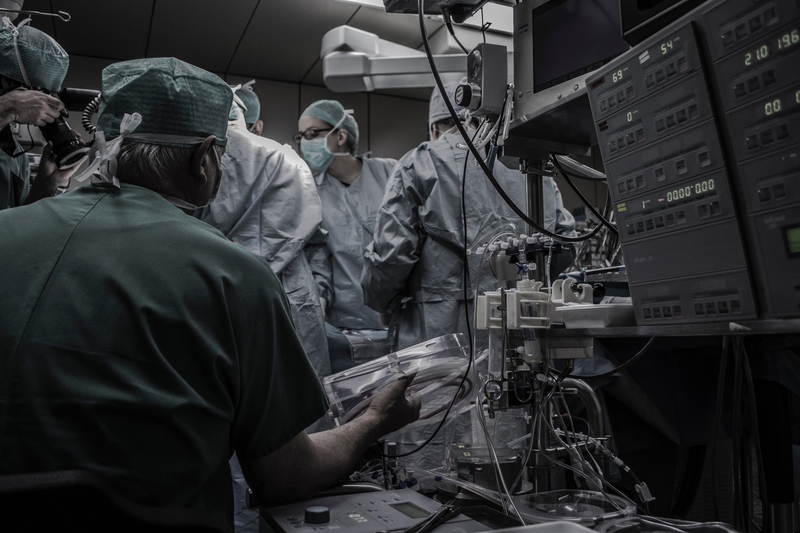
Malaysia is on the threshold of entering the Fourth Industrial Revolution (4IR) as embodied by digitalisation alongside adopting the 5G technology pioneered. Fourth Industrial Revolution (4IR) in Healthcare in Malaysia is on progress.
The government is committed to ensuring that Malaysia is not left behind in the global digitalisation wave and revolution.
By and with digitalisation, the nature of work will also be transformed. This will result in new jobs being invented in the future.
Thus, instead of technology being reliant on workers for operation and performance, workers will now be increasingly reliant on technology and automation to perform their roles. This will also there to be greater synergy, and even exchanges, between humans and technology.
We are already seeing the boundaries between the two starting to blur, particularly with the emergence of the Internet of Bodies (IoB).
IOB is simply the extension of the Internet of Things (IoT) to the realm of the organic (human, animal) body – allowing them to be manipulated, controlled, experimented on, and monitored remotely. Here, the body itself is subject to the process of digitalisation and external programming.
This phenomenon is best illustrated in the domain of healthcare.
In Malaysia, this can be seen in the case of neurobotics technology, such as the concomitant of Hybrid Assistive Limb (HAL) as cybernic treatment.
Neurobotics pertains to the interface between the central nervous system and artificial intelligence (AI) with one of its aims being to decode brainwaves or neural signals to simulate and reconstruct the interaction externally. Neurobotics leverages the pre-existing technology of electroencephalography (EEG).
Cybernic treatment is simply applied neurobotics that aims to restore and improve the connection between the patient’s muscles and the neural system.
This is done via algorithm-based artificial or biomechatronic body parts that are attached to the patient to improve mobility.
Such integration with smart technology could also be extended with reference to the neurological degenerative condition in the case of patients suffering from Alzheimer’s disease.
Currently, there is no definitive cure for Alzheimer’s, this condition inevitably requires some kind of social care for those who need it. However, at the same time, there are medical and non-medical treatments to help manage the symptoms.
These two cases (of cybernics and Alzheimer’s treatment) are where integration between healthcare and social care – as the two ‘nodal points’ – come into play.
Integration will be better supported by the digitalisation of a common database for monitoring and diagnosis. Real-time data, signs/signals and information derived under social care can be fed into healthcare and vice versa as part of an early warning system (EWS) and the process of data staging (which is very apt for cases of cancer, for example, in detecting growth of the tumour).
Moreover, the rapid emergence of the wide range of applications of 3D printing technology and additive manufacturing add to the critical occupations list (COL) as compiled by the Critical Skills Monitoring Committee (CSC), Ministry of Human Resources.
Under the category of “precision medicine”, instead of using metal or hard polymer materials for reconstructive surgeries, 3D printed materials are customisable to suit patient-specific anatomical requirements, not to mention being cost-effective.
Malaysia is poised to be the hub of 3D device manufacturing in the region. It is home to more than 190 medical devices manufacturers with investments worth RM13.2 billion.
The dawn of 3D technology is already well underway here as illustrated by the use of a 3D printed facial implant of a female patient involved in a car accident by an Oral and Maxillofacial Surgical expert at Universiti Kebangsaan Malaysia in 2015.
Related jobs that will become in demand in the future would be robotics surgical engineer, biomedical engineer, nanoscience technologist, genome sequencing specialist, and so on.
In 2018, a Memorandum of Understanding (MoU) between the Ministry of Health (MOH) and a private sector (multinational) and academia initiative was inked to accelerate the development of the digital healthcare landscape in Malaysia.
The focus of the strategic collaboration will be on digital innovation in healthcare delivery and solutions, joint cluster development activities, industry network engagement, manufacturing alliance, talent development and digital health innovation hubs.
On the whole, Malaysia on the road to completely embracing 4IR with the healthcare sector as an engine.
By extension, the digitalisation of healthcare and the generation of the new jobs of the future in the sector should contribute towards a more equitable distribution of income growth and ensure a better quality of life as part of the quest to become a smart nation.
















